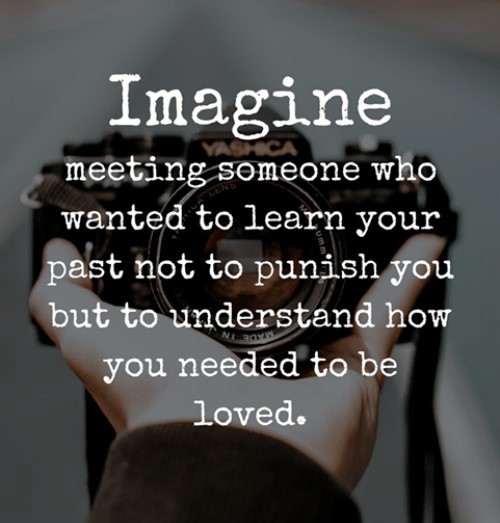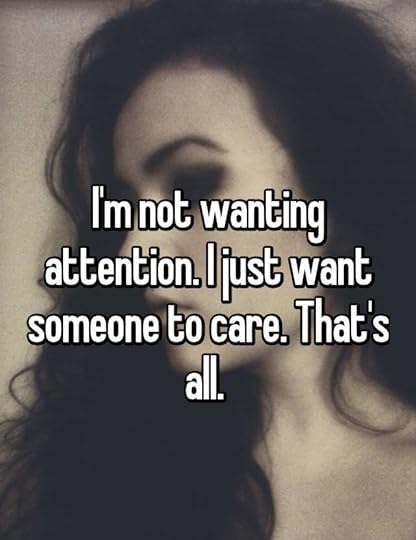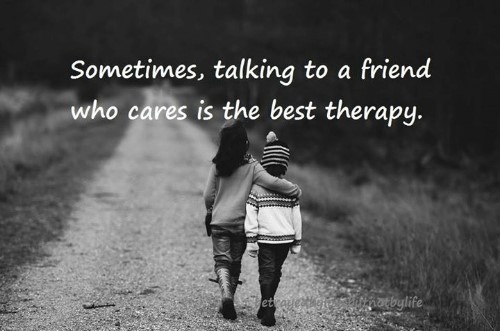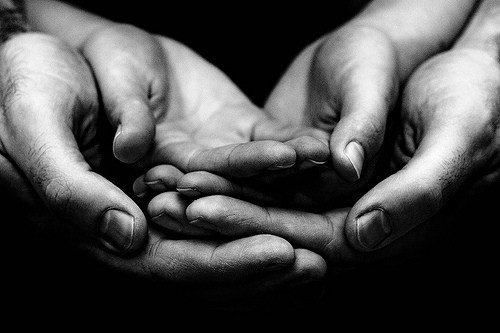Zachary Phillips's Blog, page 82
January 2, 2019
The Seven Best Self-Help Books. Ever.
 Credit: @ sweetythesweetheart
Credit: @ sweetythesweetheartI have read hundreds of self-help books. Most are unimpressive, but some are truly amazing.
Here is my top seven, as well as a brief summary of what they cover, who should read it, and my takeaways.
1) Running On Empty — Jonice Webb & Christine Musello.
Topic: Identifying and addressing the impacts of childhood emotional neglect.
Key Takeaway: The way my parents raised me can and does colour my future interactions. Once noticed, this impact can be changed in a positiv...
December 30, 2018
Why Your New Year’s Resolution Will Fail
 Image Credit: Shutterstock
Image Credit: ShutterstockThe problem with most resolutions are that they are way to drastic too actually be implemented.
Sure you could start exercising daily, but unless you are already fit and active your body will quickly fatigue and you will get sick or injured.
Even if you manage to avoid injury, eventually life responsibilities will take over and you will find it increasingly difficult to find the time to squeeze those sessions in.
Why? Because your life is already full to the brim.
It i...
December 29, 2018
Why You Need To Accept Your Anxiety
 Image Credit: Allef Vinicius
Image Credit: Allef ViniciusIt may seem counter-intuitive to suggest that you need to accept your anxiety, but there is certainly something to be said for the practice.
The symptoms of a panic attack often increase when you start to become anxious about the fact that you are having the attack.
Once the attack begins, it is happening and nothing will stop it. You just have to wait for the storm to pass.
When I realise that I am about to have a panic attack, I take the following actions.
First...
December 28, 2018
How To Stop Anxiety In Its Tracks
 Image Credit: Rudall30
Image Credit: Rudall30Becoming present state aware is one of the most effective ways that I have found to manage my anxiety.
Not only does it reduce the overall occurrences of anxiety, but it also reduces the severity and duration of panic attacks.
The goal of present state awareness is to focus your attention on your senses.
What you can see, hear, taste, touch and smell. By focusing on your senses, you are directing your attention out of your head and into the present moment.
You are groundin...
December 13, 2018
Why You Should Embrace Your Negative Emotions As Friends
 Image credit: swj.spbru
Image credit: swj.spbruAs we all know, negative emotions are unpleasant to experience. Most people take every effort to avoid feeling them from the moment they arise.
Turning to drugs or alcohol, spending hours online, binging on sugar, going on a spending spree or dissociating into fantasy.
Unfortunately these coping mechanisms do nothing to address the cause of the negative emotions.
They always return, often stronger than before.
Negative emotions → Avoidant Coping Strategy → Temporary Relief → Stronger Negative Emotions → More Avoidant Coping Strategies …

There is another approach that can be taken. Unfortunately, this approach is not pretty and certainly doesn’t feel pleasurable in the moment. But it will break that cycle forever.
You need to embrace your negative emotions as a friend.
When you share your problems, a good friend won’t offer you a beer and say ‘just forget about it’ (avoidant strategy), they will instead help you to work through the problem, offer solutions and support.
If your friend notices you acting out of character or doing something that you may later regret, they won’t simply ignore it or go just along with it (avoidant strategy), they will instead pull you up on your actions and warn you.
In both of the above scenarios, the situation may get tense, feelings risk getting hurt, and there may be some initial misunderstandings. Ultimately however, you know that your friend has your best interests at heart, as well as the advantage of a detached perspective — they are not as emotionally involved in your life as you are.
Your friend is in a position that they can see things you can’t, and thus give you beneficial advice — provided you take it that is.
The same is true for your negative emotions. They are little (or not so little) warning signs about something going on in your personal life, relationships or work.
Negative emotions are there to tell you something important, and like a good friend, they will keep returning to warn you until you take appropriate action.
 Image Credit: Bruce Van HornWhat To Do When You Notice A Negative Emotion?
Image Credit: Bruce Van HornWhat To Do When You Notice A Negative Emotion?When you first notice a negative emotion, avoid the temptation to run from it. Instead, try to look at it, embrace it and accept it.
This will be hard. If you struggle, meditation and talking therapy will help.
Realise that the negative emotions are arising for some reason — likely in response to something that you have said or done, or something someone has said or done to you.
As you would listen to a friend, you should also take some time to listen to your negative emotions.
What are they trying to tell you here? What are they pulling you up on? What do they want?
You now have a choice. Do you continue to avoid the issue that they are raising with you, or do you take action?
Please don’t let me give you any delusions here. This will not be easy — there is a reason you have avoided taking action up until now.
Your emotions may be suggesting that you need to change jobs, end relationships, learn new skills, start saying ‘no’ more often, move houses, start seeing a therapist, commit to a self-help program, or any other number of things.
Only you can decide if you should take the action.
One thing is certain however, regardless of if you do take the action or not, the severity and impact of your negative emotions will reduce. You have listened and did not run.
Your emotions have been heard and their ‘opinions’ considered.
 Image Credit: The Gottman Institute
Image Credit: The Gottman InstituteRemember, they are telling you something about your personal life, relationships or work. Something is happening that is going against your core being, and they are letting you know about it.
Failure to listen to the advice of my negative emotions has caused me tremendous personal and financial distress over the years. Something that I hope to avoid in the future.
The only caveat to this concept is when the negative emotions become overwhelming. If they are so strong that your functionality is impacted, or you are falling into a bout of mental illness, then you should certainly speak to a therapist about how to manage your emotions.
This blog post was written for one of my Patreon supporters. Thank you for your support.
~ Zachary Phillips
Ready To Start Thriving?If you want to start living a life of fulfilment, happiness and meaning, take a look at “The Seven Life Principles That You Need To Turn Your Life Around” checklist.
Click here to get the checklist now!

Why You Should Embrace Your Negative Emotions As Friends was originally published in Invisible Illness on Medium, where people are continuing the conversation by highlighting and responding to this story.
December 11, 2018
Learn How To Meditate In Under 1 Minute And Change Your Life Forever
 Image Credit: Raminnazer
Image Credit: RaminnazerThere is a reason that mindfulness meditation is taking over the world. It is great for focus, productivity and creativity, as well as for reducing the symptoms of anxiety and depression.
Everyone from business executives, to birthing mothers and even schoolchildren are meditating daily.
Science agrees.
With studies showing that daily meditation has multiple benefits including: reduction of anxiety, depression and stress, positive impacts on relationships, emotional state and attention levels and the enhancement of psychological well-being.
I have been meditating daily for years now, and I can certainly attest to these findings. It has helped me to manage mental health ramifications arising from a traumatic childhood, as well as providing me with the attention and focus needed to start following my dreams.
 Image credit: goodnose.comSo how do you meditate?
Image credit: goodnose.comSo how do you meditate?There are hundreds of different types of meditation to choose from, each with different ideologies, methods and supporters. Whilst they all will provide varying level of benefits, my preference is mindfulness meditation.
It is non secular (not religious in any way), and can be done anytime, anywhere without the need for any props, recordings or rituals.
What’s more, the method is so simple that even if you have never meditated before, you can easily begin.
So why not give it a try right now?
https://medium.com/media/8b8da87333d0252662fbc9bb93e718c9/href1) Take a seat in a comfortable position, eyes gently closed.
Cross-legged, half or full lotus are often recommended, but a chair works just as well. Make sure that you are comfortable (no pain or annoyance), but not so comfortable that you will fall asleep.
2) Set a timer for five minutes.
Five minutes is a good starting point. Over time, as you start to see the benefits of meditation, you will naturally want to increase this amount. Do so slowly, adding one minute at a time.
3) Draw your attention to the breath entering and leaving the nose.
Focus on the physical sensation of the breath at the nostril. Some people like to progressively ‘move inward’ towards the breath by first focusing on the sounds they are hearing, then the feeling of their whole body, then the entirety of their breath (including chest and stomach), and then onto the nose.
4) Continually return your focus back to the breath.
Thoughts, feelings, memories, emotions, desires and other ‘mental phenomena’ will start to arise in your mind. These will cause your attention to switch focus to them. When you notice this happening, gently return your focus back to the sensation of the breath entering and leaving the nose.
5) Continue returning your focus back to the sensation of the breath leaving the nose until the end of your session.
6) Repeat daily.

Meditation first thing in the morning is recommended, but not necessary. Just be consistent, and do it each day ~ you wouldn’t expect to see results after one gym session, similarly you can’t expect to see results after one meditation session. Keep at it!
Remember: Meditation is the act of focusing your attention onto the sensation of the breath. It is not clearing your mind, ‘blissing out’ or ‘speaking to God’.
Just repeatedly returning your attention back to the sensation of the breath entering and leaving the nose.
Want more information? The Mind Illuminated & Mindfulness In Plain English are simply the best books on meditation out there.
~ Zachary Phillips
Ready To Start Thriving?If you want to start living a life of fulfilment, happiness and meaning, take a look at “The Seven Life Principles That You Need To Turn Your Life Around” checklist.
Click here to get the checklist now!

Learn How To Meditate In Under 1 Minute And Change Your Life Forever was originally published in Invisible Illness on Medium, where people are continuing the conversation by highlighting and responding to this story.
November 29, 2018
If Someone Opens Up About Their Trauma — Believe Them
 Listen to this blog on the Reality Check Podcast
here
— or search for it via your podcast app.
Listen to this blog on the Reality Check Podcast
here
— or search for it via your podcast app.Something that doesn’t get acknowledged enough is just how bad some situations can actually be.
Trust me when I say that I know from personal experience how bad it can get.
I speak to people on a daily basis about their living situations. Often, these people share with me the regular abuse that they face at the hands of their partners, friends or parents.
They discuss physical, sexual, emotional and financial abuse, as well as the impact of untreated mental illness or addiction. This situation just adds to the regular life stressors that everyone faces.
There is a peculiar thing that seems to occur whenever someone opens up about such situations.
People who have experienced similar circumstances will immediately sympathise with the person, and begin to share their own stories. This has tremendous healing benefits for all involved.

Talking and sharing like circumstances helps everyone not to feel alone, as well as to share ideas for survival and then recovery.
Readers of my first book ‘Under The Influence — Reclaiming My Childhood’ regularly message me, saying that they have felt the way I described feeling during and after their own experiences of emotional neglect and childhood trauma.
Our similar pasts cause us to develop a deep bond.
Unfortunately, if the people listening to someone opening up about their trauma have not experienced similar life circumstances, they may not be as receptive.
Of course this doesn’t apply to all people, but there is a significant number who seem to downplay or straight up disbelieve.
I have seen countless conversations where somebody is sharing an aspect of their traumatic and abusive home life, only to witness in shock as other people respond to the story with disbelief or an attempt to lessen the severity of the victim’s situation.

“I’m sure it wasn’t that bad.”
“Everyone is good inside, although he is hurting you, he does care for you deep down.”
“You will be okay, after all we all have our crosses to bare.”
And behind their backs:
“Why does she share that kind of stuff, if it was so bad she wouldn’t be talking about it.”
“He is clearly putting us on. Why would he stay with such an abusive partner?”
I wish I was making those up.
People don’t want to believe that there is evil in this world. They can’t fathom how parents can abuse their children, husbands their wives (or vice versa), or that somebody could choose a drug over someone they claim to love.
Accepting the claims of somebody opening up about their trauma as 100% truth would cause their idealistic worldview to shatter. Perhaps they have had a great upbringing, and have subsequently been extremely lucky since.
Regardless, this downplaying of reality really does hurt.
It causes the victim of such trauma to doubt themselves. To believe that they are in fact the cause of the issue, or that they are weak for being impacted by it.
It could cause them to keep to themselves, no longer feeling comfortable sharing with anyone (this is terrible for their ongoing mental health).
Let’s get real for a moment. Trauma is real. Addiction is real. Family violence is real. These all have a real world impact upon their victims for years to come. Of course therapy and other self-help options can reduce the impact, but often the impact is lifelong.
At worst, it can lead to cycles of addiction, self-harm and suicide.
If someone opens up to you about their trauma — believe them.
Realise that you are part of a small, select group of people that this person feels safe enough to trust with their pain. By telling you, they are in fact saying to you that you are special to them.

So please, believe what they are saying. Offer your support and advice, or at least just compassion.
Finally, if you think they are “just looking for attention” and therefore it is fine to disbelieve or downplay their story of trauma, realise a couple of things:
You may be wrong.
Just because you think that they are making it up, doesn’t mean they are. Think of how many times you have been wrong in the past — you could be wrong again. The vast majority of people won’t lie about trauma.
However, if they are making it up (and remember you can never be certain), that still tells you something. It tells you that they are indeed suffering — emotionally at least. They are still giving you a cry for help. This shouldn’t be simply ignored.
People will often talk about suicide long before they attempt it. This means that people who are “just wanting attention” may in fact actually be wanting attention — they may be wanting enough to wade off those thoughts of suicide.
As with trauma, always believe people who say that they are suicidal. It may save their lives.
If someone starts talking about trauma or suicide try the following. Start by validating their feelings and let them know that you are listening.
“I hear you.”
“I am really sorry that you are going through that.”
Then, depending on the situation, you could offer some practical advice. For example suggesting anything that has worked for you in a similar situation (if you have lived it), and by suggesting the services of a therapist/doctor/book/support group.
You could also offer your support.
“If you ever need to talk I am here for you.”
“Do you want me to come with you to your first appointment?”
“What can I do to support you?”
Remember that unless you are a trained professional, it is not your role to save everyone, or even to personally intervene. If you are concerned for someone (but don’t want to, or can’t intervene yourself), call emergency services, crisis response teams, their current therapists, or their school (if a student).
If what they tell you impacts you, speak to a therapist yourself.
- Zachary Phillips
Ready To Start Thriving?If you want to start living a life of fulfilment, happiness and meaning, take a look at “The Seven Life Principles That You Need To Turn Your Life Around” checklist.
Click here to get the checklist now!

If Someone Opens Up About Their Trauma — Believe Them was originally published in Invisible Illness on Medium, where people are continuing the conversation by highlighting and responding to this story.
November 12, 2018
There Is More To You Than Just Your Trauma

I had a traumatic childhood.
My father, a dealer and an addict, was at best emotionally neglectful. At worst, he put me into situations that exposed me to dangerous people who took advantage of me.
This left me dealing with a plethora of mental health concerns: namely anxiety and depression, but also issues with the aftermath of sexual trauma.
Initially I was in survival mode, moving out of home at 15, trying to do it all on my own. I blamed him for my past as well as my mental state.
Over time, I began to identify myself as a victim of sexual assault and a sufferer of mental illness. It made up a massive part of what made me, me. This makes sense, considering most of my major life decisions up until that point had occurred due to my past.
At my worst, I was struggling with addictive tendencies, self-harming behaviour and suicidal thoughts. For the most part, I wanted to get better, but strangely, part of me didn’t.
Growing up, I never really had a solid identity. I didn’t really know who I was, where I fit in the world, or even what I enjoyed doing. My father provided little in the way of insights into me. What little attention he gave me was always centred around his passions.
https://medium.com/media/c338c725743d80da54b58e526a970e51/hrefSo when I was finally able to connect to something (my trauma/mental illness) as well as with people who had similar issues to mine, I didn’t want to lose them. I finally had an identity, and I didn’t want to question it.
Unfortunately, my mental state kept deteriorating. One night, when I was on the verge of another bout of self-harm, I realised something. I realised that I hadn’t truly tried to recover from my past and heal.
I realised that despite seeing the therapists, doing the prescribed exercises and taking the medications, I wasn’t all in.
I was afraid.
I didn’t want to go back to a place where I had no identity. Although I was suffering, that suffering felt more comforting than the thought of the unknown.
It took some advice from a friend of mine to finally convince me to try everything. If I was considering ending it all, I may as well try everything before I do. This was the start of my true recovery.
I had to accept my past trauma and subsequent mental illness as part of who I am, but not the only part of me. There was more to me. Far more.
 Mischele Rosenthal ~ Your Life After Trauma
Mischele Rosenthal ~ Your Life After TraumaOver time I gradually found things that I enjoyed, aspects of my personality long hidden, and dreams that I knew I had to pursue. Through writing, competent therapy and honest introspection I was slowly able to find who I am.
This has resulted in significant changes in my life. I have quit jobs, moved houses and let go of toxic friendships. I have started new projects, and redefined my goals. Lots of change — all of which is confronting.
I still feel the pull. The allure of identifying with my trauma and mental illnesses. If I let myself, I could easily slip back into my old patterns. I could very easily use it to justify any weakness, addiction or inaction.
But I won’t. I know now that recovery is a continuous fight — both for mental stability, as well as for an identity that goes beyond trauma and its impact.
If you are struggling with the impact of trauma (or mental illness, disability, physical conditions or chronic pain), please realise that you are more than that.
I know that your condition is challenging. I know that it is debilitating. I know that you will have had to change your life significantly because of it.
But I also know that there is more to you than your trauma.
- Zachary Phillips
Ready To Start Thriving?If you want to start living a life of fulfilment, happiness and meaning, take a look at “The Seven Life Principles That You Need To Turn Your Life Around” checklist.
Click here to get the checklist now!

There Is More To You Than Just Your Trauma was originally published in Invisible Illness on Medium, where people are continuing the conversation by highlighting and responding to this story.
November 8, 2018
Why You Are Your Own Worst Critic

“The reason that we struggle with insecurity is because we compare our behind the scenes with everyone else’s highlight reel” ~Steven Furtick
We only see what others want to show us.
We see all of our flaws, failures and anxieties, but none of theirs. We see our struggle and compare that to others successes.
What’s more, we are extremely proficient in highlighting our own deficits. We know our vision for a particular project, and we know how and why what we end up producing in not perfect. We focus on the flaws that only we know exist.
The cliché that artists hate their own work comes about because they feel like they can never properly express what they envisioned in their mind’s eye. Their work is never really finished. So when they present their art, it is almost an admission of failure.
 Monet’s Water Lillies ~“One day, everything would be fine, and then the next day Monet would puncture the canvass with a knife. According to Monet, he destroyed at least 30 canvasses this way. ”
Monet’s Water Lillies ~“One day, everything would be fine, and then the next day Monet would puncture the canvass with a knife. According to Monet, he destroyed at least 30 canvasses this way. ”Yet the outside observer sees the final product as whole.
They don’t know what the artist was attempting or where they came short. They see what is presented to them and appreciate the artist for it. Those ‘mistakes’ and ‘failures of ability’ that haunt the artist become part of their style, recognisable quirks that set them apart from the rest.
The ‘flaws’ are interpreted as stylistic choice or artistic expression — not as failure.
Unfortunately, we are forever stuck inside ourselves. There is not much that we can do to detach and zoom out from our subjective experience. Meditation and reading help, but ultimately, we are all the sum of our genes interacting with our environmental experiences up to this point in time.

Like everyone, we see the world through a unique and highly subjective lens. We are privy to every doubt, worry, fear and aberration. We are present for every failed attempt and every ‘sinful’ thought. We see our worst moments. Yet the world just sees the highlights. They see the end result derived from hours of mental anguish and thousands of self-deprecating thoughts.
They see our highlight reel.
The ironic thing is that two people could be dwelling in self-loathing, simultaneously idolising the ability of the other person to keep it together, to produce and to succeed. Both parties believing the other to be perfect, both failing to realise that they are both suffering internally.
In my mind, the only solution to this predicament is honest expression. If we can share our inner thoughts, feelings and emotions, perhaps everyone will begin to realise that they are not alone. That their mind plays the same tricks as everyone else’s and that they are being their own worst critic.
Until we can safely open up and share our vulnerability with the world and subsequently see others’ vulnerability, we will forever live in a state of emotional isolation and self-hatred. That is why I talk about my mental state, illnesses and traumatic past. By opening up, others have opened up to me. As a result of sharing, we have both grown tremendously.

I want to share this experience with the world, and for this purpose I need your help. I have started a project called ‘Share Your Story’. It is a blog series in which I invite anyone to share their story. I want readers to get a unique perspective into the lives of other people, their inner worlds as well as their unique trials and tribulations.
I am not looking for perfect writing ability or talent, rather just an expression of raw honesty.
Given the delicate nature of the subject matter that some people will present, I am more than willing to have the contributions posted anonymously. On the other hand, I am also happy to post your picture alongside your name and contact details if you would prefer.
I invite anyone that is interested in contributing to read more about the specifics of this project here and read some of the contributions already up!
~ Zachary Phillips
Ready To Start Thriving?If you want to start living a life of fulfilment, happiness and meaning, take a look at “The Seven Life Principles That You Need To Turn Your Life Around” checklist.
Click here to get the checklist now!

Why You Are Your Own Worst Critic was originally published in Invisible Illness on Medium, where people are continuing the conversation by highlighting and responding to this story.
November 5, 2018
Why You Can’t Compare Traumas

I have shared a lot about my traumatic childhood and subsequent mental illnesses. I share it freely, in the hopes that I can help people to feel less alone in their suffering, and that there is hope for a positive future.
Given my openness, it is unsurprising that a lot of people are quite open about their trauma with me.
One common thread that I have noticed is a tendency for people to discount their own suffering in light of what they know about mine. It is almost as if they believe my suffering to be more significant than their own, and that therefore invalidates what they went through and how they are feeling about it.
I am certainly okay with playing that role for people if it is helping them (I find that putting my life into perspective against others helpful myself). But I fear that most people see the (perceived) worse suffering of others as a sign that they have no right to complain, or be ‘broken’ themselves.
This leaves them feeling trapped. They are still suffering from the aftermaths of their own trauma, only they now also feel that their suffering is itself invalid, or that they are pathetic for not being able to cope in comparison to someone else.
This is not ideal.
I want to state this clearly: nothing that happened to anyone else invalidates how you feel, or how you have felt. You have experienced your trauma, and you are living in its aftermath.
I think that people look at the lives of others and wonder how they could have survived. Yet those same people could be looking back and asking you the same thing about your life.
Everyone’s trauma is unique.
I survived my childhood. But I don’t know if I would have been able to survive yours. Perhaps you wouldn’t have been able to survive mine. Who knows? This is a false comparison. One that only leads to suffering.

One thing that I have learnt from reading the hundreds of direct messages from readers talking about their trauma is that everyone has their own unique pasts, each with their own unique mental health.
Talking about it helps. But comparing our trauma to someone else’s trauma most often doesn’t.
Rather we should focus on our feelings. How we are managing life now, and on helping each other through the challenges that we all face.
Finally, it is important to realise that you only really get to see the highlight reel of other peoples lives. You only get to see what they choose to show you — either in person or on social media.
This results in a false version of their reality. You are seeing a small snippet, and comparing it to your entire existence. Complete with your doubts, ruminations, failures and stuff ups.
So when you hear of someone surviving and thriving after trauma, it is hard not to feel like a comparative failure.
The reality is that person is still suffering, still battling and still working on improving themselves. You just don’t get to see all of that process!

This is why I share my journey. I want to provide a real look into trauma, mental illness and the recovery process. But please remember, regardless of how much I share, you still only see what I choose (read: at times manage) to share with you. The reality of my mental state on a moment by moment basis is different.
- Zachary Phillips
Ready To Start Thriving?If you want to start living a life of fulfilment, happiness and meaning, take a look at “The Seven Life Principles That You Need To Turn Your Life Around” checklist.
Click here to get the checklist now!

Why You Can’t Compare Traumas was originally published in Invisible Illness on Medium, where people are continuing the conversation by highlighting and responding to this story.



